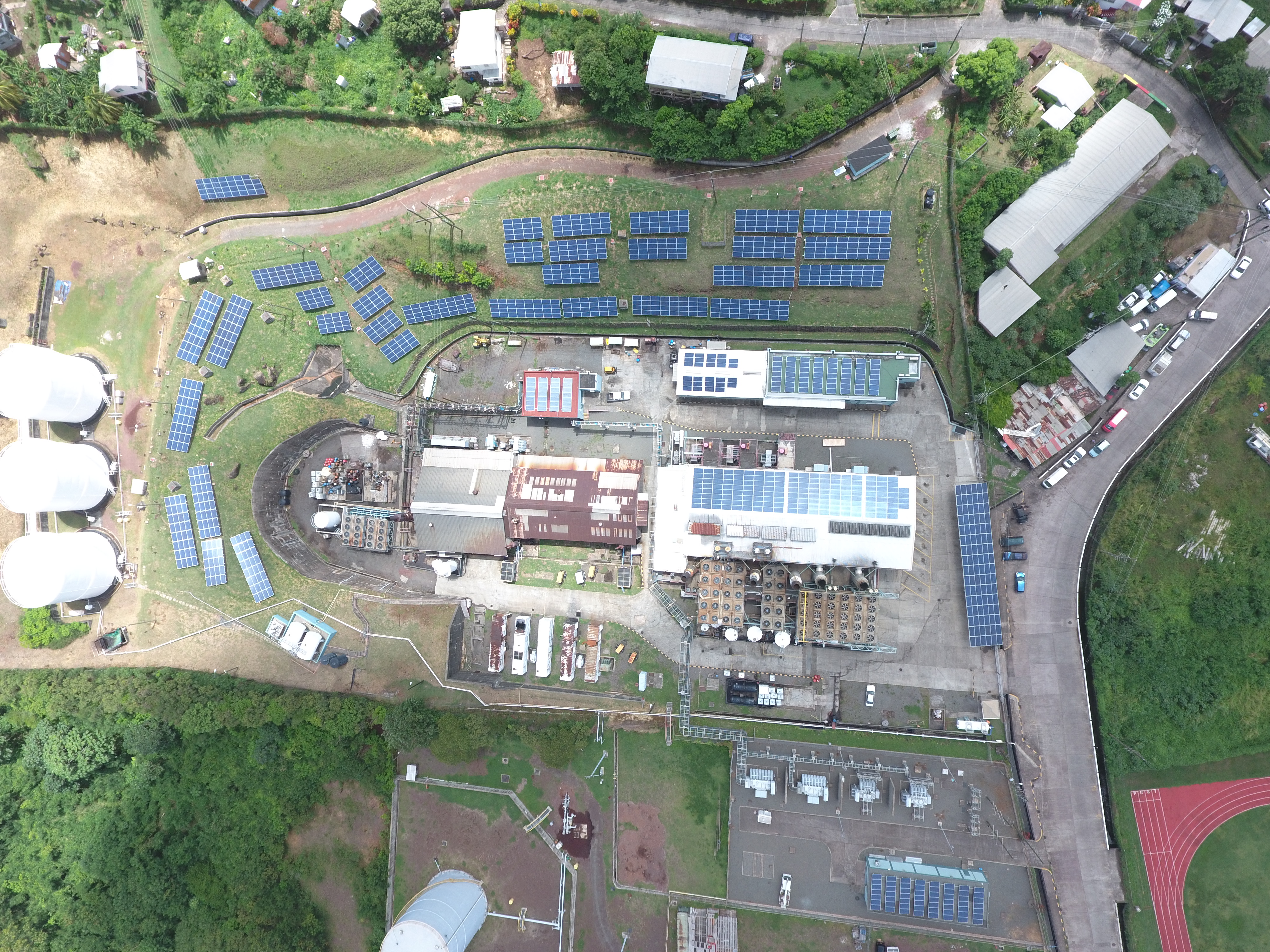You are here
Grenada’s Expanded and Inclusive 2020 NDC

Photo provided by Mr. Collen Cover, Grenlec
Grenada's second national climate plan is expanded and more inclusive. Grenada pledges to adopt a holistic and multi-sectoral approach to chart a greener and more climate resilient future. The island is committed to reducing greenhouse gas (GHG) emissions by 40 percent by 2030, but this depends on securing adequate finances, technical support, and enhancing capacity. The island aims to cut GHG emissions primarily by taking action in the energy (e.g. domestic transport), forestry, waste, and cooling sectors. The plan, formally known as Nationally Determined Contributions or NDC, also features new elements. It considers youth, children, women, other vulnerable groups, gender responsiveness, health, education, water, sanitation, food security, disaster risk reduction and loss and damage.
Grenada reprised and improved the highly consultative process used to develop its NDC Partnership Plan in 2019 to improve its 2020 NDC. The Partnership Plan also informed Grenada’s NDC priorities and increased implementation support from partners. Regular, detailed, and consistent communication enhanced efficiency, transparency, accountability, and enabled inclusiveness and meaningful ‘whole-of-society' engagement. Grenada’s National Climate Change Committee (NCCC) led this coherent and improved process with technical support from a range of partners. They include Climate Analytics (CA), the Food and Agriculture Organization of the United Nations (FAO), the Global Green Growth Institute (GGGI), the International Renewable Energy Agency (IRENA), and the Organisation of Eastern Caribbean States (OECS) through the NDC Partnership Climate Action Enhancement Package (CAEP), with additional support through the UNFCCC Regional Collaboration Center, GIZ, UNICEF, and United Nations Development Programme (UNDP) Climate Promise Initiative.
Enhanced and consultative
Grenada’s climate success comes at a challenging time for all countries amid a global standstill caused by the COVID-19 pandemic. Grenada remained determined to keep its second NDC on track. The island overcame challenges as varied as accessing data and gaining feedback from stakeholders. Rather than restrict society-wide engagement, Grenada used nearly 100 virtual consultations with various stakeholders across sectors to identify strategies and initiatives to design its second NDC, and then validated the processes through a series of workshops.
A true partnership effort
The new NDC considers emissions reduction in the cooling sector, demonstrates linkages with gender, youth, marginalized groups, disaster risk reduction, poverty, and sustainable development to increase inclusiveness. Grenada mobilized the full spirit of partnership to establish these shared national priorities. Climate Analytics provided a report that informed Grenada’s mitigation target potential. This critical starting point improved the national understanding of the pathways for economic and societal transformation needed to match mitigation ambition. Building on robust data and the involvement of many sectors, Climate Analytics used LEAP (Low Emissions Analysis Platform) to model the integrated energy planning required to achieve Grenada’s NDC target. Due to the capacity constraints faced by SIDS and the rigorous reporting required to monitor progress towards the country's NDC, Grenada assessed the most impactful sectors for GHG reduction and set priorities based on national capacity for monitoring and reporting.
Grenada needs accurate GHG emissions estimates and a full account of associated uncertainties to monitor progress of emissions reductions, track NDC implementation and update future NDCs. GGGI and IRENA are supporting Grenada through the NDC Partnership’s Climate Action Enhancement Package (CAEP). GGGI and IRENA are assessing data flows related to climate action and NDC goals and analyzing stakeholder data requirements and gaps in order to identify and address issues that are limiting data availability and quality. This work will yield an improvement plan with a timeline for implementation and specifications for an MRV system tailored for Grenada. These resources will support accurate accounting, tracking, and implementation of NDC goals. Several additional activities are ongoing and will be delivered through CAEP to complement the NDC update and strengthen its implementation. The activities will include, inter alia, capacity building, public awareness, and finalizing the mapping of risk, hazard, exposure, and vulnerability of communities at the parish level for varying levels of global warming.
Leveraging the new NDC for a green recovery
Grenada is now working to put its 2020 NDC at the heart of post-COVID-19 resilient economic recovery plan. The Ministry of Finance has already requested support under the NDC Partnership’s Economic Advisory Initiative to boost capacity, which the World Bank will support.
This blog was written by Dr. Spencer Thomas, NDC Partnership In-Country Facilitator at the Grenada Ministry of Climate Resilience; Frances Fuller, Climate Analytics; Kristin Deason and Pepa Lopez, GGGI; and Judlyn Telesford-Checkley and Vintura Silva, UNFCCC RCC.
Grenada also leveraged technical support from the UNDP Climate Promise Initiative to develop its 2020 NDC.
